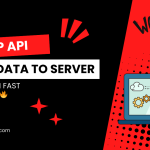The Best Fluffy Pancakes recipe you will fall in love with. Full of tips and tricks to help you make the best pancakes.
Revolutionizing Smart Agriculture: Implementing IoT Solutions for Precision Farming
In today’s rapidly evolving world, the agricultural industry is undergoing a significant transformation thanks to the integration of Internet of Things (IoT) technology. One of the most impactful applications of IoT in agriculture is precision farming, which leverages advanced sensors, devices, and data analytics to optimize farming practices and maximize crop yields.
The Role of IoT in Precision Farming
IoT devices and sensors play a crucial role in revolutionizing smart agriculture by providing real-time insights into various aspects of farming operations. These devices are deployed across agricultural fields to monitor soil conditions, weather patterns, crop health, and equipment performance. By collecting and analyzing this data, farmers can make informed decisions to enhance productivity and sustainability.
Key IoT Devices and Sensors Used in Precision Farming
- Soil Moisture Sensors: These sensors measure the moisture content in the soil, helping farmers determine the optimal irrigation schedule to prevent overwatering or underwatering.
- Weather Stations: Weather sensors collect data on temperature, humidity, rainfall, and wind speed, enabling farmers to plan planting and harvesting activities based on weather forecasts.
- Drones: Drones equipped with high-resolution cameras and sensors can capture aerial images of crops, providing valuable insights into crop health, pest infestations, and nutrient deficiencies.
- GPS Technology: GPS-enabled devices help farmers precisely map their fields, track equipment locations, and optimize the use of resources such as fertilizers and pesticides.
Benefits of Implementing IoT Solutions in Agriculture
The adoption of IoT solutions in agriculture offers a wide range of benefits, including:
- Improved crop yields through optimized resource management.
- Reduced water usage and decreased environmental impact.
- Enhanced decision-making based on real-time data and analytics.
- Increased operational efficiency and cost savings.
Challenges and Considerations
While IoT technology holds great promise for the agricultural sector, there are challenges that need to be addressed, such as data security and privacy concerns, interoperability issues among different IoT devices, and the need for reliable connectivity in rural areas.
Despite these challenges, the potential of IoT in revolutionizing smart agriculture through precision farming is immense. By harnessing the power of IoT devices and sensors, farmers can optimize their operations, increase sustainability, and meet the growing demands of a rapidly expanding global population.




